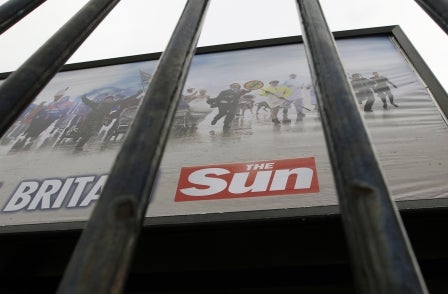
The Press Complaints Commission has judged that The Sun did not breach Clause 10 (clandestine devices and subterfuge) of the Editor's Code of Practice when it obtained information about the deaths of two people on the Norfolk Broads that was not supposed to be released to the media.
The newspaper was judged to have breached Clause 1 (accuracy) but the PCC said its offer of a page two clarification was a “sufficient remedy”.
The two stories, which featured on 4 and 5 September last year, related to the deaths of John Didier and Annette Creegan and were complained about by a representative from the Norfolk Constabulary.
The complainant said information from a police evidence log, obtained by an agency photographer, was for “police eyes only”. The photographer had taken a picture of a police officer holding the evidence log book.
The paper claimed there had been no element of subterfuge and that the information had been obtained as a result of “legitimate journalistic enterprise”. It said the picture was taken on a standard camera in a designated media area and that the photographer had not intended to capture the evidence list.
The complainant also claimed the newspaper was inaccurate to suggest the police had “proactively and officially” released the information to the media. This would have been contrary to police practice and, she claimed, carried the risk of compromising its investigation as well as the confidence of the family of the victims and the public.
An accuracy complaint was also made about the newspaper’s account of events leading to the deaths.
The complainant said the statement that “Cops believe suspected strangler John Didier hurled his lover’s body off a boat… before leaping overboard to drown” suggested the information had been released and verified by police.
The police had previously said Greegan was "likely to have died as a result of strangulation" and that "the male victim died as a result of drowning". The Sun said this information had been obtained by on and off-the-record guidance by officers and the press office.
It said the words “hurled” and “leaped overboard” had not been used but claimed they were accurate. It did, though, offer to publish a clarification on page two of the newspaper.
In its adjudication the PCC pointed out that press coverage of ongoing police investigations serves an important public interest but noted the attached risks – “not least compromising public trust in the police to conduct such inquiries with appropriate regard for the privacy of individuals concerned".
It judged that the photographer had been standing in an approved location and there was "no evidence that [he] had sought to disguise his motive or actions".
Email pged@pressgazette.co.uk to point out mistakes, provide story tips or send in a letter for publication on our "Letters Page" blog
